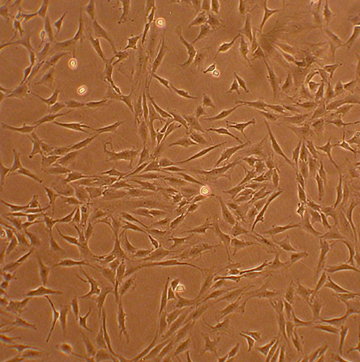Human Chondrocytes: Osteoarthritis: HC-OA
Description
Human Chondrocytes Osteoarthritis (HC-OA) are derived from human articular cartilage of donors with OA. Osteoarthritis is an inflammatory disease characterized by increased degradation of cartilage tissue in the joint due to overproduction of enzymes degrading the extracellular matrix. Despite the initial proliferation and activation of chondrocytes, they are not able to efficiently repair the degrading cartilage. Instead, chondrocytes undergo terminal differentiation and eventually apoptose, leading to mineralization of cartilage in a process resembling bone formation during development. Thus, HC-OA provide a useful model to study changes in chondrocyte biology in response to abnormal environment of the OA joint.
HC-OA from Cell Applications, Inc. have been used to demonstrate that THF-alpha activates transcription of ADAMTS-4, a metalloproteinase implicated in cartilage degradation in OA, via p38-MAPK-dependent mechanism.
Characterization: Positive for aggrecan after differentiation
Details
| Tissue | Human articular cartilage from donor w/ osteoarthritis | |
|---|---|---|
| QC | No bacteria, yeast, fungi, mycoplasma, virus | |
| Bioassay | Attach, spread, proliferate in Growth Med | |
| Cryovial | 500,000 HC-OA (1st passage) frozen in Basal Medium w/10% FBS, 10% DMSO | |
| Kit | Cryovial frozen HC-OA (402OA-05), Growth Medium (411-500), Subcltr Rgnt Kit (090K) | |
| Proliferating | Shipped in Gr Med, 2nd psg (flasks or plates) | |
| Doublings | At least 10 | |
| Applications | Laboratory research use only (RUO). Not for human, clinical, diagnostic or veterinary use. |
Resources
FAQs
Need More Help?
Visit our comprehensive FAQ page for detailed answers to common questions.
Need More Help?
Visit our comprehensive FAQ page for detailed answers to common questions.
Primary Cell FAQs